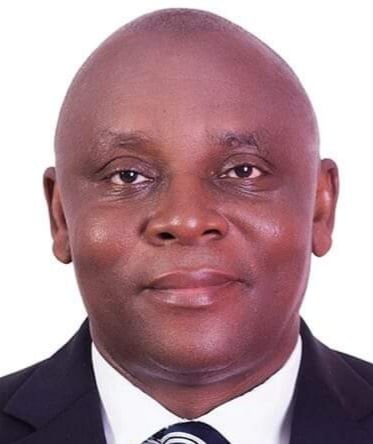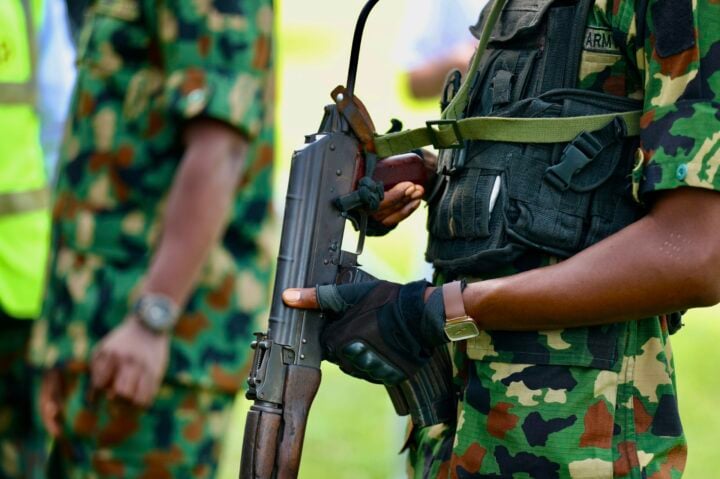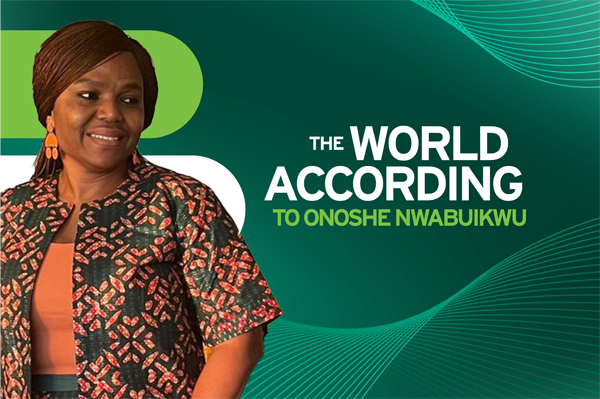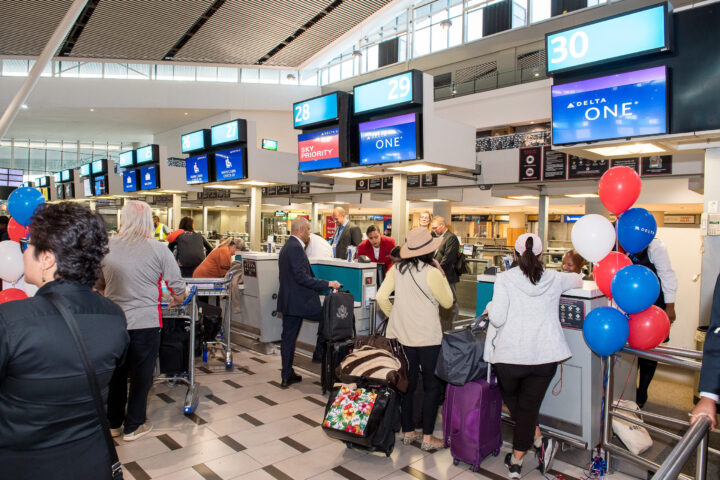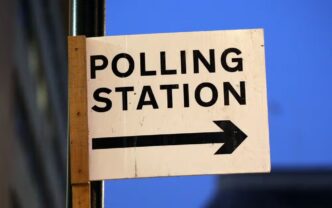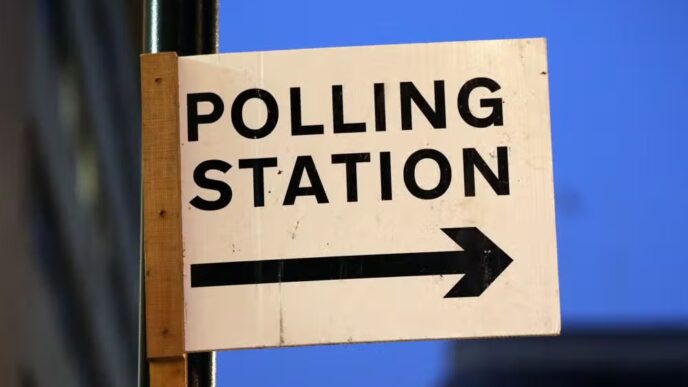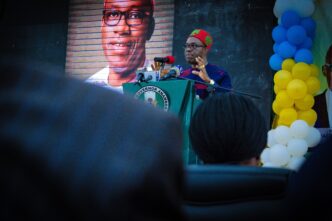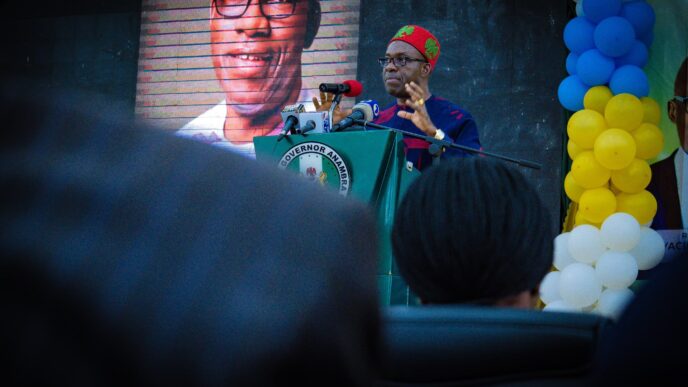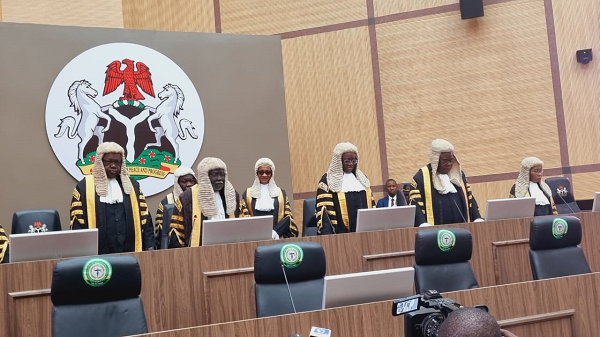A leader of Lakurawa speaking with its members in the north-east
The Defence Headquarters, the nation’s military high command, addressed a press conference last week and announced that a new terrorist group has invaded the country from Niger Republic and Mali. Known as ‘Lukarawa’, the group has settled in Sokoto and Kebbi states, creating serious security challenges for the people and the security agencies. The military said the terrorists came after the military coup which toppled the civilian administration in Niger Republic in July 2023 and that they were able to enter Nigeria due to lack of effective border controls after the July coup.
Just last week, Lukarawa killed 15 people in Kebbi and there are reports of attacks on other villages, including imposing financial levies on the communities and stealing food crops and livestock. This has negative impacts on food production. Lukarawa is said to have links with ISWAP (Islamic State – West Africa or Willayat Garb Ifriqiya), the ruthless terrorist group that operates freely in the Sahel region and is responsible for mass killings and devastations in that region. Reports that the group is offering financial incentives to lure young Nigerians in Sokoto state into its fold are particularly jarring.
According to Edward Buba, director, DHQ media operations, who spoke to the journalists, prior to the military takeover in Niger, there were joint border operations between the Nigerian army and Nigerien security forces which had kept the terrorists at bay, but with the breakdown of the joint border operations in the aftermath of the coup, the borders have become more porous, less protected and less impregnable to the terrorists.
‘’The terrorists took advantage of the gaps in cooperation between both countries and exploited difficult terrains to make incursions into remote areas in some Northwestern states to spread their ideology,’’ Buba said. This must be a very serious problem for our military which has already been overburdened by over 15 years of fighting Boko Haram and other criminal groups across the country.
Advertisement
But what caused the ‘’gaps in the cooperation between both countries’’ and how does that relate with the need for our president to speak after a long and careful deliberation? In July 2023, a group of military officers overthrew Niger’s democratically elected government, creating shocks, apprehensions and panics across the ECOWAS sub-region. President Bola Tinubu had just taken over as the chairman of ECOWAS, and within days, the regional body hurriedly announced a raft of sanctions on Niger, the strictest the bloc has ever imposed on an errant member.
They included closure of all borders with Niger; suspension of financial transactions and freezing of the country’s assets. As if these were not enough, ECOWAS went further to issue an ultimatum to the junta to restore constitutional order and reinstate the ousted president, Mohammed Bazoum, within one week or face other measures, including military intervention. President Tinubu made the announcements in his capacity as the new ECOWAS chairman, although he was in office as president for only six weeks. His election as president coincided with Nigeria’s turn to head the body.
Soon after the sanctions were announced, the military leaders of Niger aligned with the three countries that had earlier fallen under military putsch (Mali; Burkina Faso and Guinea) and called off ECOWAS’ bluff by breaking away from the bloc and cutting off all military and diplomatic relations with Nigeria. The juntas vowed to collectively fight whatever military intervention Nigeria and ECOWAS were contemplating.
Advertisement
It was an unexpected turn of events for Nigerians who had just been plunged into a serious economic crisis by the new administration. From all walks of life and every corner of the federation, people were quick to advise Tinubu not to go to war with Niger and its allies. Humiliated, Abuja then launched a flurry of diplomatic activities to try to convince the régime in Niamey to release the ousted civilian president who was said to be under house arrest. Nigeria has never been this disgraced.
Eventually, good sense prevailed; ECOWAS ate its words and Tinubu learned his lessons in Diplomacy 101. There was no military intervention and the juntas are still in power till today. It is the biggest diplomatic embarrassment that we ever suffered since the killing of Ken Saro-Wiwa in 1995. Obviously, Tinubu was not well briefed on the potential implications and outcomes of the sanctions he announced. He did not even have a cabinet in place and did not even receive some counsel from foreign relations experts in the country before he plunged into the ECOWAS debacle.
Even during the presidential campaigns that lasted from early January 2022 till the election in February 2023, foreign policy was not a strong suit of any of the presidential candidates. As a leading candidate, Tinubu had no foreign policy adviser and because he did not even give press interviews or appear in presidential debates, very little or nothing was known of his strength in foreign affairs. And so, when he emerged as ECOWAS chairman, it was clear that he was not prepared for the diplomatic challenges ahead.
The break-up of military cooperation between Nigeria and Niger Republic due to the hasty announcement of sanctions by President Tinubu last year has now led to the incursions of new terrorist groups into the country. This is why it is important for leaders to be deliberate, careful and calculated before they make pronouncements. A president’s words are powerful and they matter.
Advertisement
As Benjamin Disraeli, former UK Prime Minister (1804 – 1881), said ‘’with words, we govern men’’, a leader should talk with dignity, charisma, self-respect and respect for his audience. Rushing to impose sanctions on a new military régime in Niger and threatening military reprisal against the junta was an act of recklessness for which we are now paying with open borders and terrorist invasions. A month after Muhammadu Buhari took office in May 2015, he went on a visit to Niger, Chad and Mali, discussed bilateral cooperation and cemented military collaboration and border security with them. That helped a lot.
We have to do everything to prevent Lukarawa from becoming another Boko Haram – in size and the magnitude of destruction they inflict on Nigerians -, and as a first step, Tinubu should re-engage the Nigerien authorities and restore military cooperation and border control with them. I’m surprised that President Tinubu was quick to travel out to Saudi Arabia this weekend to work with Arab leaders to resolve the Israeli-Gaza conflict, instead of working with other ECOWAS leaders to reach out to Mali, Niger and Burkina Faso to resolve this security situation in our country. Talk of wrong priorities!
Views expressed by contributors are strictly personal and not of TheCable.
Add a comment
